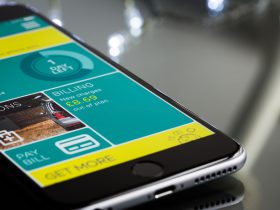Gone are the days when managing personal finances meant hours of manual calculations, piles of paperwork, and tedious visits to the bank. The advent of information technology has revolutionized personal finance, empowering consumers with tools and resources to take control of their financial well-being. From budgeting apps to robo-advisors, technology has transformed how individuals interact with and manage their money.
One of the most significant impacts of IT on personal finance is the accessibility and availability of financial information. In the past, individuals had limited access to financial data, and staying on top of one’s financial situation often required constant vigilance. Information technology has democratized finance by making data readily available at our fingertips.
With the proliferation of smartphones, people can now monitor and manage their finances on the go. Mobile banking apps enable users to view their account balances, transfer funds, and pay bills with just a few taps. This real-time information empowers consumers to make informed decisions about their financial transactions, ensuring they stay within their budget and avoid unnecessary fees or penalties.
Moreover, online platforms and websites provide a wealth of resources for consumers to learn about personal finance and make informed choices. Blogs, podcasts, and video tutorials offer practical advice on topics such as budgeting, saving, and investing. Additionally, financial calculators and simulators help users understand the potential outcomes of their financial decisions, giving them more confidence to make choices that align with their goals.
Another game-changer in personal finance empowered by technology is the rise of fintech startups. These startups leverage information technology to develop innovative financial products and services that cater to consumers’ changing needs. Robo-advisors are a prime example of this. Automated investment platforms use algorithms to manage clients’ portfolios, providing cost-effective investment advice that was once exclusive to high-net-worth individuals. This democratization of investment management has opened up opportunities for individuals to grow their wealth without the need for extensive knowledge or large sums of money.
Furthermore, financial planning tools and software have made it easier for consumers to track their spending, create budgets, and set financial goals. With data analytics and machine learning capabilities, these tools can even provide personalized recommendations based on an individual’s spending patterns. This level of personalization helps users make smarter financial choices, leading to better money management and improved financial health.
Innovations such as peer-to-peer lending platforms and cryptocurrency have also reshaped personal finance. Peer-to-peer lending allows individuals to bypass traditional financial institutions and obtain loans directly from other individuals. This provides borrowers with more choice and potentially lower interest rates, while lenders can earn attractive returns on their investment.
Cryptocurrency, though still relatively new and volatile, has the potential to disrupt traditional banking and payment systems. With blockchain technology, transactions can be conducted securely, transparently, and without the need for intermediaries. Virtual currencies like Bitcoin offer individuals the ability to have more control over their money and conduct transactions globally, often with reduced fees and faster processing times.
In conclusion, information technology has empowered consumers by providing easy access to financial information, promoting financial literacy, and offering innovative products and services. The digital revolution in personal finance has democratized finance, allowing individuals of all backgrounds to take control of their financial well-being and make informed decisions about their money. As technology continues to evolve, the future of personal finance promises even greater empowerment for consumers.



















Leave a Reply